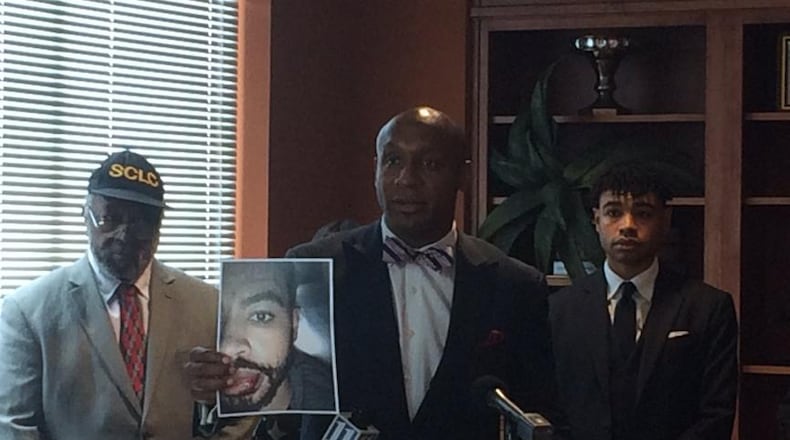A lawsuit filed by a man who said he was injured when an Atlanta police officer allegedly slammed him to the ground and then arrested him without cause can proceed toward trial, the federal appeals court has ruled.
In a unanimous decision, a three-judge panel of the 11th U.S. Circuit Court of Appeals in Atlanta rejected the city's attempt to dismiss the lawsuit filed three years ago by Corey Toole against Atlanta Police Department Sgt. Aaron Zorn and other officers. Toole contends he was targeted for arrest because he was filming Atlanta police during a November 2014 protest after a Missouri grand jury declined to indict the officer who shot and killed 18-year-old Michael Brown in Ferguson.
During the march, held near the intersection of Peachtree Street and Ivan Allen Boulevard, police ordered protesters to clear the street. When he heard this, Toole said, he immediately got on the sidewalk while continuing to take video of what was going on with his iPhone.
Even so, the lawsuit alleges, Zorn pulled Toole off the sidewalk and violently threw him onto the street. Toole’s face was cut with deep gashes to his forehead and upper lip, and he also chipped a front tooth, the suit said. Toole’s wrists were then cuffed and he was taken into custody.
When Zorn first approached him, Toole told the officer, “I’m on the sidewalk,” which was recorded on his phone, the suit said. But Zorn claimed Toole was still on the street when he arrested him, the court’s ruling said.
Zorn cited Toole for disorderly conduct for impeding traffic because he remained in the street after being told not to.
In its Dec. 26 decision, the 11th Circuit said it had to read the facts in the light most favorable to Toole — that he was on the sidewalk when he was arrested. And if that were the case, Zorn had no actual or arguable probable cause to arrest Toole, the court said.
Credit: Curtis Compton
Credit: Curtis Compton
First of all, as Toole’s own video showed, there was no traffic to impede because the street had been closed and was full of APD officers, the court said. Also, at the time of his arrest, Toole was engaging in constitutionally protected activities — engaging in a protest and filming police conduct, the court said.
So if what Toole says is true, he was unlawfully arrested without probable cause and had his First Amendment rights violated while protesting and filming the police, the ruling said.
Atlanta lawyer Gerry Weber, a member of Toole’s legal team, said his client was marching to show his outrage at what happened in Ferguson.
“The irony is that he was arrested at the march by an officer for doing nothing more than filming police,” Weber said Sunday. “The court reaffirmed that we all can film police in public places and that the arrest was unconstitutional.”
Attorneys for the city of Atlanta’s law department did not respond to emails seeking comment.
About the Author
The Latest
Featured



